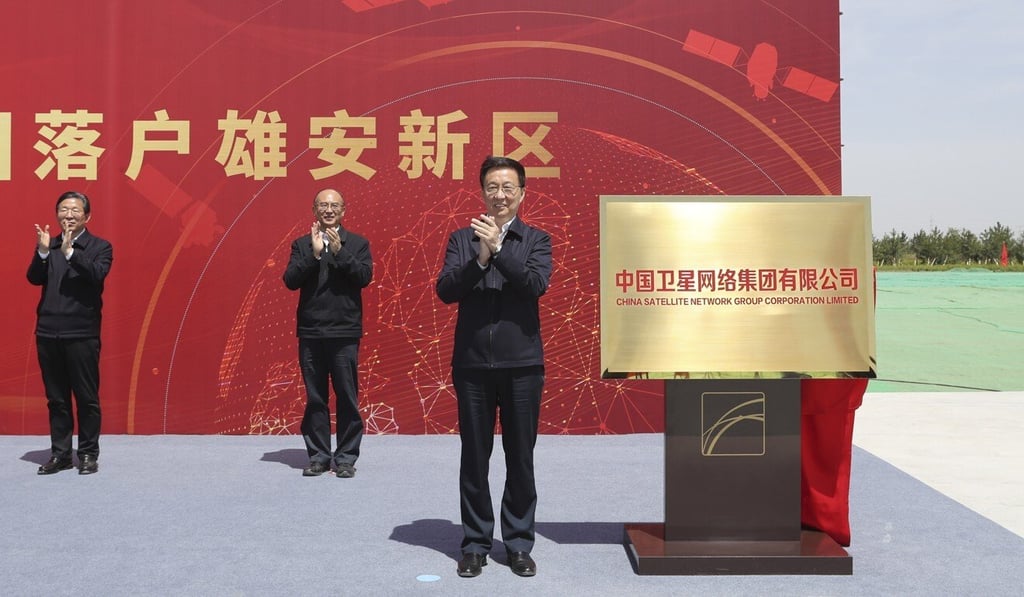China’s new bid to take on Elon Musk’s Starlink: a state-owned satellite enterprise
- China Satellite Network Group was launched in late April in Xiongan, the area south of Beijing designated as home to a future smart city
- Satellite internet is one of the ‘new infrastructure’ technologies that China wants to accelerate with government support

Known as China Satellite Network Group, the young company is tasked with launching low Earth orbit (LEO) satellites into space, beaming internet services to anywhere on the planet. It reports to the Assets Supervision and Administration Commission, which controls the Chinese government’s stakes in state-owned companies.
Other details about the new firm remain shrouded in mystery.
The company has no official website at the moment, and the government has yet to release any information about the firm’s organisational structure – except that Zhang Dongchen, former general manager at state-owned China Electronics Corporation, was appointed to oversee its establishment.
Yet the company’s strategic importance to Beijing has not gone unnoticed by industry insiders.
